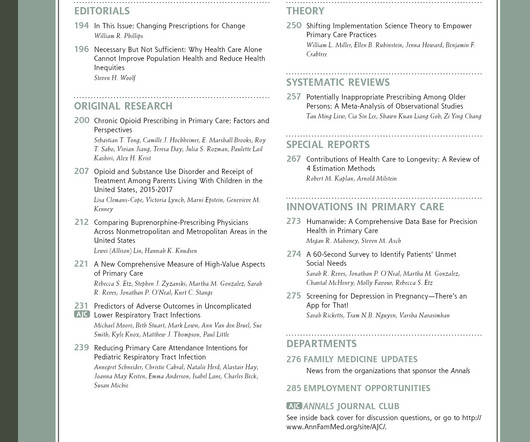Drinking the Disease: Arsenic Exposure in Well Water from the Perspective of Patients and Providers [Social determinants and vulnerable populations]
Annals of Family Medicine
NOVEMBER 20, 2024
In the United States testing is routinely done for communal water, though responsibility for testing and treatment of private wells falls on homeowners. Despite recommendations for routine screening, this is rarely done. Arsenic cannot be seen, tasted, or smelled.












Let's personalize your content